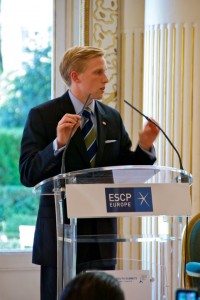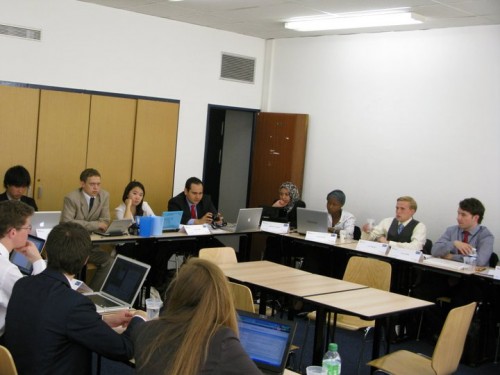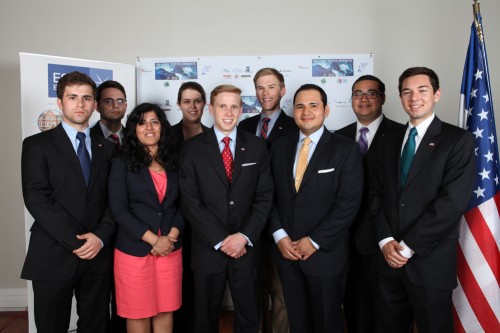
Guest post by Drew Peterson, Chief Strategy Officer of the Young Americans for Democratic Leadership
This is a guest post by Drew Peterson, the Chief Strategy Officer of Young Americans for Diplomatic Leadership (YADL). A Pickering Fellow at the U.S. Department of State, Drew was a Model UN rockstar during his college years at Georgetown, and he plans to enter the Foreign Service upon completing a master’s degree in Russian, East European, and Central Asian Studies at Harvard. YADL is a non-profit organization that promotes understanding of international diplomacy through experiential learning for students and young professionals in the United States.
As 2011 draws to a close, planning is underway for next June’s G8 and G20 Youth Summit, which will be held in the U.S. for the first time in the conference’s history.
For those Model UN enthusiasts who don’t have a concrete idea of what the G8 and G20 Youth Summit entails, here is a snapshot: young debaters and policy activists from every G8 and G20 participating state gather for a week of deliberations that could accurately be described as the World Cup of diplomacy simulations.
Much like a Model UN conference, the summit is divided into committees, the purpose of which is to produce a final communiqué similar to, but less formal than, the resolutions written by MUN delegates. There is a committee for the youth “heads of state” of the G8 and G20 countries. There are then three “ministries” exclusively for the G8: Foreign Affairs, Defense, and Justice; and four for the whole G20: Finance, Economics, Environment, and Development. Sherpas, or negotiating assistants, liaise between the “heads of state” and the other committees, thereby ensuring continuity among the documents produced by the diverse deliberating bodies. If the conference is a success, a consolidated final communiqué presenting the results of the discussions will be signed at the closing ceremonies. As at large MUN conferences, a press corps reports on the proceedings.
Where the Youth Summit departs excitingly from practices familiar to the MUN community is in the fact that delegates actually come from the states they represent. In this sense, the conference is less a model than a convention of concerned young people from around the world who bring the cultural values and interpreted national interests of their home countries to the negotiating table. Seeing these differences of national opinion clash, evolve, and come to compromise over many arduous days of talks is a fascinating learning experience for the experienced MUN delegate. At this year’s summit, I served as president of the U.S. delegation, and I can confirm that it was both an honor to represent my country in this capacity and exhilarating to meet and negotiate with my peers from the other G8 and G20 participating states.

Delegates negotiate during the G8/G20 Youth Summit
The central challenge of the Youth Summit in recent years has been to reconcile youthful idealism with realistic policy recommendations. As the conference is neither fully real diplomacy nor a completely artificial simulation, two schools of thought contend within its councils. The first treats the conference exclusively as an opportunity for young people to advocate new policies unimpeded by the constraints of bureaucracy and entrenched interests. The second tempers this perspective with a conviction that the policy process must be simulated realistically in order for the debate to produce useful, implementable recommendations. Proponents of these two different views frequently clash both as individuals and as delegations over the content of the final paper and the process by which it is drafted. It can be exhausting and frustrating to try to manage (or wage) this conflict at times, but ultimately the experience is eminently instructive and formative. I am hard-pressed to imagine a better practical education in the stuff of diplomacy.
While the summit tends to attract experienced university undergraduates and graduate students, any citizen who is between the ages of 18 and 30 at the time of the summit (June 3-9, 2012) is welcome to apply for the U.S. delegation. But time is dwindling: applications are due December 11th, 2011. Interested MUNers and non-MUNers alike are encouraged to visit the website of Young Americans for Diplomatic Leadership, the U.S organizing committee of the G8 and G20 Youth Summit, for more information. This year’s conference promises to be a truly exceptional experience for all involved!

The United States delegation to the G8/G20 Youth Summit. Drew is in the center, and next to him is fellow Model UN rockstar Nida Nizam from McGill University.

